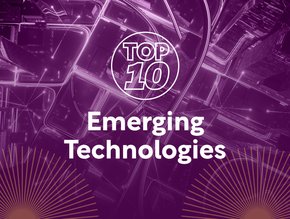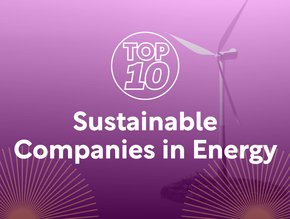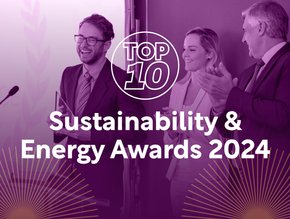
As new clean energy resources are developed, and the demand for sustainable energy in place of fossil fuels rises, so does misinformation around these crucial topics. The need for clear, concise and communicative information is immense, so we’ve picked out some of the groups providing educated energy reports.
Covering content from governments, consultants and companies on everything from digital device usage to regional energy specifics to global clean energy proposals, this list provides an insight into some of the top energy whitepapers that can support the journey to net zero.
10. Amazon’s Reaching Net-Zero Carbon by 2040
Decarbonizing and Neutralizing the Use Phase of Connected Devices
To meet its commitment of net-zero carbon emissions by 2040, Amazon is taking a microscope to the impact of every corner of its business.
This whitepaper discusses the use phase of devices, which accounts for 10-15% of the overall carbon footprint of rechargeable battery-operated devices and 60-80% of the footprint of plugged-in devices.
The company's sustainable change starts with energy efficiency, before focussing on renewable energy — device capacities and investments in wind and solar that, by 2025, will produce the clean energy equivalent to the use of all Echo, Fire TV, and Ring devices.
Read Amazon’s whitepaper: Reaching Net-Zero Carbon by 2040: Decarbonizing and Neutralizing the Use Phase of Connected Devices here.
9. Tesla’s Master Plan Part 3: Sustainable Energy For All Of Earth
American electric vehicle manufacturer and clean energy company Tesla released its Sustainable Energy For All Of Earth report earlier this year, outlining ‘a proposed path to reach a sustainable global energy economy through end-use electrification and sustainable electricity generation and storage’.
The 39 page report discusses eliminating fossil fuels, costs associated with the development, and what the fully sustainable energy economy will look like, as well as side by side comparisons of the financial future of clean versus current energy usage.
Read Tesla’s Master Plan Part 3: Sustainable Energy For All Of Earth here.
8. Shell: Benefits of investing in biofuel technology
Energy giant Shell is working towards a sustainable future in energy, and believes that biofuels and lower carbon fuels could play a significant role in reducing the net carbon footprint of mobility. The company’s Energy Transition Progress Report details emissions developments over the past five years, but it is also working to increase biofuel investment globally.
“Climate change hasn’t gone away, and society must remain focused on the longer-term challenges,” says Ben van Beurden, ex-CEO and current Advisor to the Board of Directors at Shell. “It still needs urgent action.”
Read Shell’s whitepaper Benefits of investing in biofuel technology here.
7. Imperial College London: Net-zero GB electricity
Cost-optimal generation and storage mix
Energy Futures Lab is an institute within Imperial College London that works to promote energy innovation and advance systemic solutions for a sustainable energy future.
It leverages the expertise of the energy community at Imperial to offer timely, impartial and academically rigorous assessments of energy technologies and reliable analysis on important energy topics through whitepapers and reports.
This whitepaper explores how Britain's electricity system can be transformed to achieve net-zero greenhouse gas emissions using modelling from Imperial’s IDLES programme. The report details a range of cost-efficient portfolios of electricity generation and storage technologies, with acknowledgement of investment and infrastructure developments.
Read Imperial College London’s Net-zero GB Electricity whitepaper here.
6. UK Government ‘Powering our net-zero future’
The UK Government’s whitepaper sets out how the UK will clean up its energy system and reach net zero emissions by 2050.
It discusses the government’s plan to reduce reliance on fossil fuels in favour of cleaner energy sources, however KPMG’s report on the whitepaper voices concerns that the report may not have considered post-Brexit and COVID-19 repercussions.
“This is evident in the EWP with regular reference to the intention to introduce legislation for measures “when Parliamentary time allows”,” KPMG states.
The government has since released an update on the report, which can be found here.
Read the UK Government's energy whitepaper here.
5. White Space Strategy (on behalf of Panasonic) ‘The Future Of Renewable Energy
A White Space Strategy White Paper Exploring The Development Of European Large-Scale Renewable Generation To 2050’
White Space Strategy’s whitepaper explores the development of European large-scale renewable generation to 2050.
The 40 page report discusses how the energy landscape will change in major European markets, where the renewable energy will come from and how it will affect businesses globally.
“Increasing corporate sustainability through contributions to achieving a sustainable society is part of our ESG management,” says Yuki Kusumi, CEO of Panasonic.
Read The Future of Renewable Energy whitepaper here.
4. Peninsula Clean Energy ‘Achieving 24/7 Renewable Energy By 2025’
Peninsula Clean Energy is working towards 24/7 clean energy at speed — the energy provider aims to fuel its 310,000 residential, commercial, and industrial customers with renewable energy on an hourly basis by 2025.
The whitepaper outlines the company’s goals, current efforts and longer term plans, emphasising flexibility as new technologies develop, and working to ensure that energy provisions are maintained regardless of the weather.
The company is committed to green energy — without a hefty price tag for any of its customers.
Read Peninsula Clean Energy’s plan ‘Achieving 24/7 Renewable Energy By 2025’ here.
3. Grid Beyond ‘Global Energy trends 2023’
Based in Ireland, Grid Beyond uses Artificial Intelligence (AI), machine learning, and advanced data modelling to provide intelligent Energy As A Service to tackle the challenges businesses face moving towards net-zero.
The whitepaper discusses the impacts of the energy crisis, and what that means for the energy sector and companies working towards net zero. It highlights the biggest challenges facing the industry over the next 12 months, and acknowledges that whilst energy transitioning will never be a straight path, greater security and independence can result from less reliance on fossil fuels.
Read Grid Beyond’s Global Energy Trends 2023 whitepaper here.
2. World Economic Forum
In collaboration with Boston Consulting Group and SAP ‘Accelerating Asia’s Advantage: A Guide to Corporate Climate Action’
Climate change could have a disproportionate impact on Asian economies and people, according to the whitepaper by The World Economic Forum in collaboration with Boston Consulting Group and SAP.
The paper analyses the critical role the region needs to play and examines the opportunities to be gained from taking immediate and bold climate action.
It reports that a revenue opportunity of US$4.3tn is available for Asian businesses by 2030 from activities like the expansion of renewable power, energy efficiency in buildings, and greater circularity in producing industries, making up a 43% share of the global total. Similarly, 58% of the jobs required to service those opportunities will be situated in Asia, creating as many as 232 million roles for the region.
Read ‘Accelerating Asia’s Advantage: A Guide to Corporate Climate Action’ here.
1. EY: Renewable Energy Country Attractiveness Index (RECAI)
Ernst & Young’s (EY) detailed report houses data on the current acceleration of green energy transformation, discussing the recent increase in investment in wind and solar energy, and the importance of legislation in green energy for the future of sustainable energy.
This Renewable Energy Country Attractiveness Index (RECAI) is the consultancy’s 61st issue and incorporates insights into market conditions and regional developments taking place.
The analysis of the report talks on a global basis and also reaches conclusions about the solar PV market, particularly when investments are increasing in this space.
Read EY’s RECAI here.






